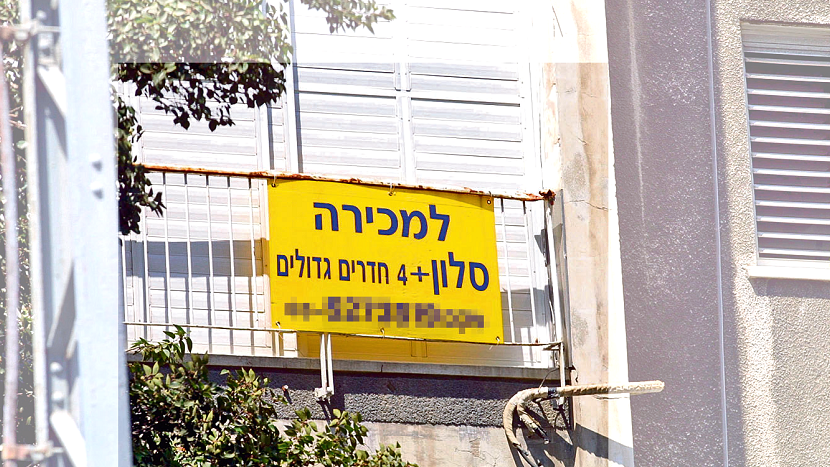The political and social strife in Israel wrought by the government's judicial reform push has also percolated into the real estate market, as the current delicate situation is dissuading many Israelis from purchasing property.
Related stories:
Nurit, a lawyer who lives in Tel Aviv with her husband Guy and three children, has been interested in buying a new house and has been searching for one for the past three years. However, due to the recent events, they have decided to halt their search until the situation clears up.
“We’ve been looking for an apartment for a long time, but we felt that the market is currently not suitable for a purchase due to price increases," the 42-year-old says.
“We realized that we couldn’t buy a house, so we looked for garden apartments, and when we found one that was acceptable to both of us, but we decided not to buy because of the situation. This is not the time to take out a mortgage. We want to have money available if we decide to leave the country."
Shlomi Chen, 37, married plus two from Modi'in, has also been looking for an apartment in the past few months but eventually decided to shelve the purchase. "We decided to halt and stop looking for an apartment because we are waiting to see what will happen in Israel following the reform and whether the market will bounce back or not," he says.
"We wanted to buy an apartment from a contractor in Bat Yam in a new residential project, and while going through the contract we noticed the building inputs price index rose by a percentage and a half. We asked the contractor to pin the price to zero indices, and at first, he refused. Then, two weeks later he agreed, however, we decided to withdraw from the deal."
"We notice the social and political situation at the moment, the weakening of the shekel against the dollar, interest rates hikes, and we just don’t know what is about to happen in the real estate market. Does the price we offered really reflect the market price? Will we lose? Will the market recover? So we decided to wait,” he said.
“The progress of the legal reform and the political and social instability affect the real estate and economy at large, even beyond the impact of interest rates,” explains Irit Hopper, owner of Inhouse Marketing Residential Projects.
“Israelis prefer at this stage to wait with the purchase of an apartment or making investments until things become clear. Whether it’s young couples who have saved up for a purchase, or other people who seek to buy a new apartment and are afraid they won’t be able to upgrade their apartment or investors who are looking for better alternatives.”
“I believe that right now there is an ideal window of opportunity for home buyers. Consumers' bargaining skills have improved dramatically. I believe that we will see soon, just as in previous cases, the public will eventually cave in all at once after the crisis, and it will lead to a sharp and rapid rise in prices.”
But not only Israelies abandon the local real estate market. According to Tal Kopel, CEO of real estate agency Madlan, "Since last January we have seen a slowdown in the number of foreign buyers. The number has fallen by about 10% since the beginning of the year, especially among people from the United States, as many froze the move for the time being, waiting to see the results of the reform. And if you compare the current period (January-March) to last year, you can see that the number dropped by almost 25%."



